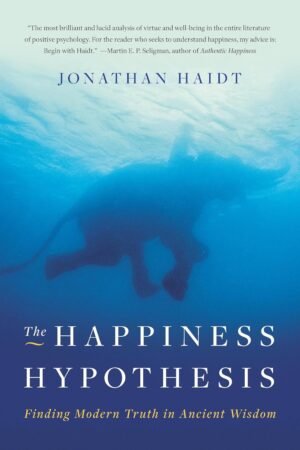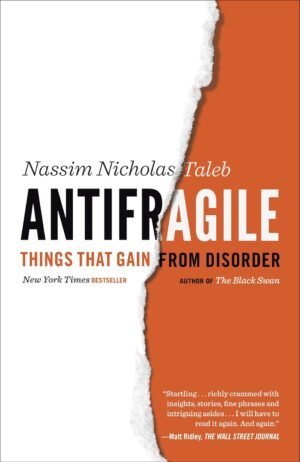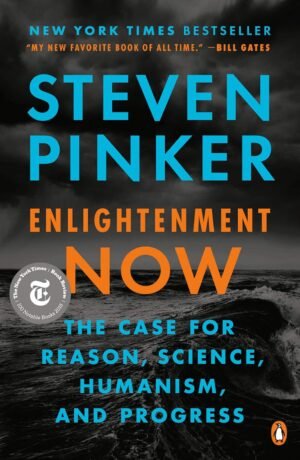Descartes’ Error by Anthony Damasio
René Descartes was a French philosopher, mathematician, and scientist famous for saying: “I think, therefore I am.” He believed that the mind and the body were completely separate and that the mind could operate through conscious reasoning unaffected by emotion. Although those ideas have permeated Western Culture for a long time, Descartes was totally wrong.
Antonio Damasio, a Neuroscience Professor, identified that pure reason is not only impractical, it also doesn’t lead to better outcomes. Demasio tells the story of a patient who had a life-threatening brain tumor removed. After the surgery, he was as intelligent on IQ as before but they soon found he couldn’t make decisions, even small ones like where to go for lunch. He’d rationally calculate calories, available parking, and driving time, but couldn’t efficiently make a decision. In the end, Dr. Demasio would recommend an option and the patient latched on to that finite answer.
Descartes’ Error is a wonderful book to pair with The Happiness Hypothesis by Jonathan Haidt which describes logic like a rider and emotion like an elephant. The patient Dr. Demasio describes in this book had a problem that wasn’t a lack of reason but the opposite. The surgery had damaged the brain’s connection between logic and emotion. He’d lost his elephant and without that emotion, he lost his job, and his wife, and ended up penniless. Worse, he couldn’t even feel the relief of sadness about it.
In Paradox: Book One of The Singularity Chronicles Kira finds that the blend of emotion with logic is the essential missing component in what creates a true artificial general intelligence. As I summarize the events of Paradox at the beginning of Book 2: Integration:
The rational and logical outcome of the emotionless AIs had been apocalyptic. Reason uncoupled from emotion and emotion uncoupled from reason tore the world apart.
If you’re curious to read more on the topic, check out these essays from the popular Substack Polymathic Being:
- Elephant Riding <- Start here for a super useful intro
- Avoiding Infobesity
- You Know Nothing!
- Eliminating Bias in AI/ML
- Stereotyping Properly
Original price was: $20.00.$12.89Current price is: $12.89.
Product Details
Descartes’ Error: Emotion, Reason, and the Human Brain by Anthony Damasio challenges centuries-old ideas about the mind-body divide, as first proposed by the philosopher René Descartes. Damasio, a leading neuroscientist, introduces the concept that emotions play an integral role in rational thought and decision-making. Through groundbreaking case studies—such as that of Phineas Gage, a man who lost part of his brain and, with it, his ability to make rational decisions—Damasio presents his somatic marker hypothesis, demonstrating how emotions guide reasoning and contribute to effective problem-solving.
Key Takeaways:
- The Somatic Marker Hypothesis: Emotions, far from being distractions, help guide our decision-making by marking important events with somatic (bodily) markers that lead us to make more rational choices.
- Mind-Body Connection: Damasio’s research underscores the deep connection between physical states and mental processes, challenging Descartes’ dualism that has dominated Western thought.
- The Role of Emotion in Decision-Making: People who lose their ability to experience emotions also lose their ability to make effective decisions, highlighting the critical role emotions play in rational thinking.
- Real-World Applications: Understanding how emotions guide reasoning can improve leadership, strategy, and personal growth, enabling better decision-making in high-stakes situations.
Why It Matters: This book is crucial for anyone involved in leadership, strategy, or personal development, as it offers a deep understanding of the mind-body connection and the role of emotions in making sound decisions. Polymathic Disciplines champions this holistic understanding, recognizing that human behavior cannot be understood by isolating reason from emotion.
Actionable Insights:
- Leverage the power of emotions to improve strategic decision-making in business and personal contexts.
- Develop greater self-awareness of how emotional states influence daily decisions, thus gaining more control over personal and professional outcomes.
- Apply Damasio’s findings to build emotional resilience, using emotions as tools for better performance and creativity.
- If you’re curious to read more on the topic, check out these essays from the popular Substack Polymathic Being:
- Elephant Riding <- Start here for a super useful intro
- Avoiding Infobesity
- You Know Nothing!
- Eliminating Bias in AI/ML
- Stereotyping Properly






Reviews